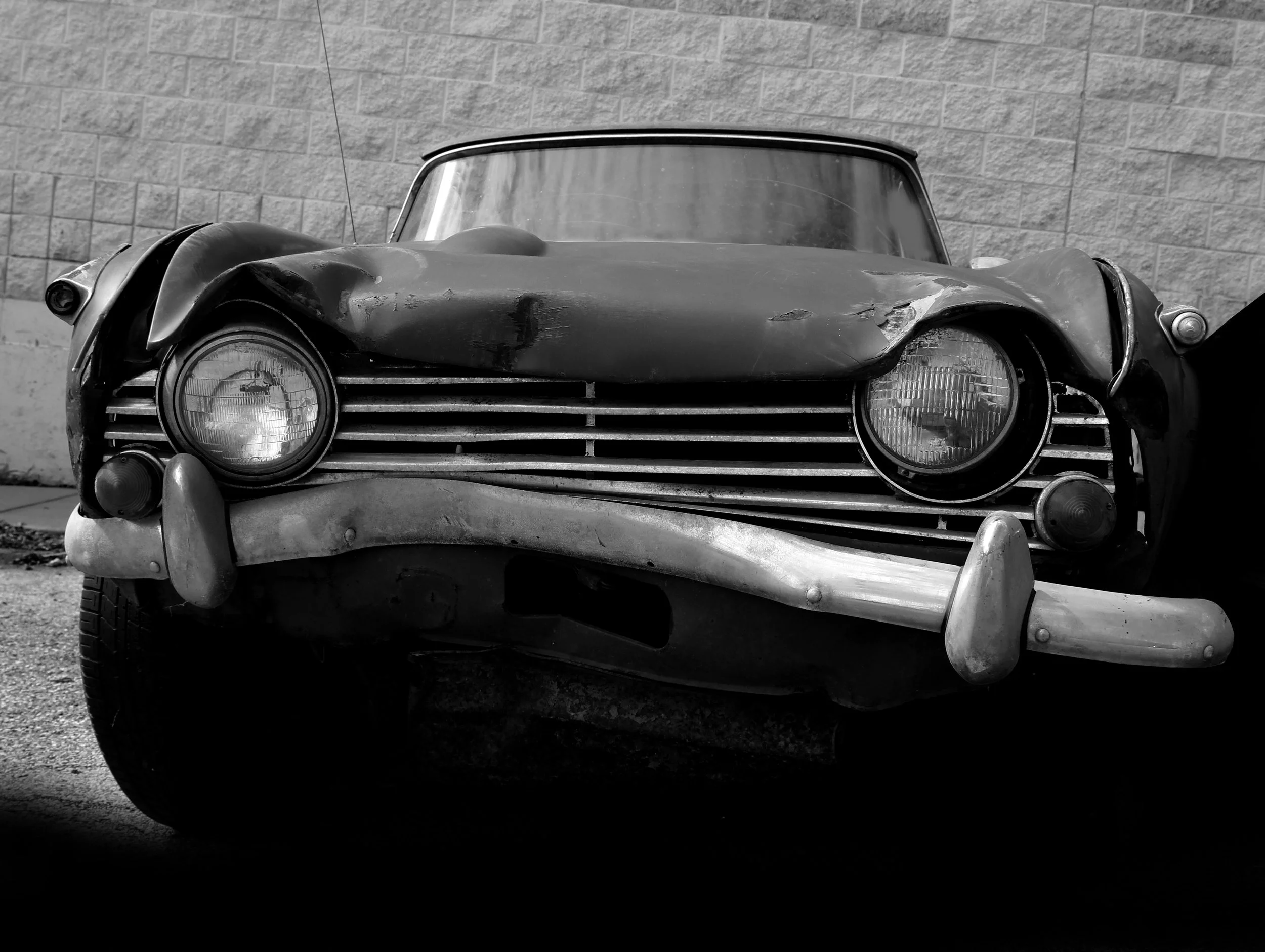Painful Familiarity
Ever scroll through social media posts tagged with #carcrash or #carwreck? It hurts, yet it’s hard to look away. You might end up in the garage, making sure your baby is just fine, and vowing to be a safer driver.
Has your blood pressure settled down yet? No? Then wait a minute before searching for wrecked pictures of your car. If you’re ready, take it in. Breathe. Hold the hand of someone you love. And then name your feelings. Don’t be surprised if you feel a strange familiarity, especially if you’ve wrenched on your car to any degree. It’s an intimate empathy: See the familiar lines of the muffler and spare tire cover, fully exposed after the rear bumper was torn off. See those awfully finicky plastic interior panel fasteners sheared off, as interior parts became exterior parts following a nasty side-impact collision. See the mangled radiator on an otherwise unrecognizable façade, now lacking any distinctive lines because the bumper, grille, and fenders are gone.
It should feel different. Seeing a wealthy stranger’s damaged Ferrari F40 hurts, but it doesn’t yank at the heartstrings like seeing a fellow Triumph TR250 owner’s pride and joy with a smooshed-up nose. You don’t wish misfortune on Ferrari drivers, or anyone else, but the Triumph scene feels less surreal and more real, even imminent.
This familiarity with pain and brokenness flows throughout the Bible. It helps that so much of it was written by fellow miscreants, screw-ups, and the accident-prone. So when Moses writes about ten of the 12 scouts lacking faith in God’s plan in Numbers 13, he wrote with that familiarity. Same with Solomon warning against a life lived for “vain pursuits” in Ecclesiastes, or Peter urging young men to live in humility and submission to one another in 1 Peter 5. That humility was hard-earned; it took years, and a sense of empathy for his brothers’ and sisters’ pain, to shape his words and ministry.
These saints, inspired by God on earth and now in His presence in Heaven, are probably better imagined not as immortally enshrined in stained glass but bearing painful airbag burns as they approach fellow car crash survivors and saying, “I’ve been there, and I want to help.”
Paul counsels today’s believers to follow this lead and empathize with our fellow miscreants and the accident-prone. After listing a variety of sinful conditions in 1 Corinthians 6:10, he says, “And that is what some of you were. But you were washed, you were sanctified, you were justified in the name of the Lord Jesus Christ and by the Spirit of our God.” (1 Corinthians 6:11) Christ-followers aren’t impervious to damage. We aren’t spared from it as long as we stay on the right path, or avoid this sin or that sin. We’ve been wrecked and rebuilt, and by His grace we get to keep driving, and, motivated by empathy and familiarity, watching for fellow humans who may be stranded and broken-down on the side of the road. That familiarity speaks volumes to the person on the side of the road. Any advice or wisdom has a much higher impact (no pun intended) if it’s accompanied with “I’ve been there:”
“My SW20 MR2 is prone to lift-throttle oversteer too. Stay in it and have faith. Let me show you.”
“I got curb rash on my hellaflush Audi S4 last week. It’s awful. Let’s talk about it.”
“You should see the uneven tire wear on my Ioniq after I overinflated the tires to try to extract the greatest efficiency from them.”
“And that is what some of you were” sometimes feels like “And that is what some of you are.” God has redeemed and rebuilt us, but the damage still feels familiar. That’s okay. With that kind of empathy, you can’t hear someone else’s pain with detachment, but with an overwhelming desire to tell about your favorite repair shop, and your Almighty mechanic: God.

